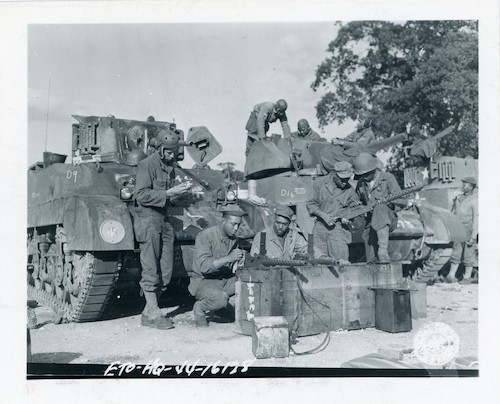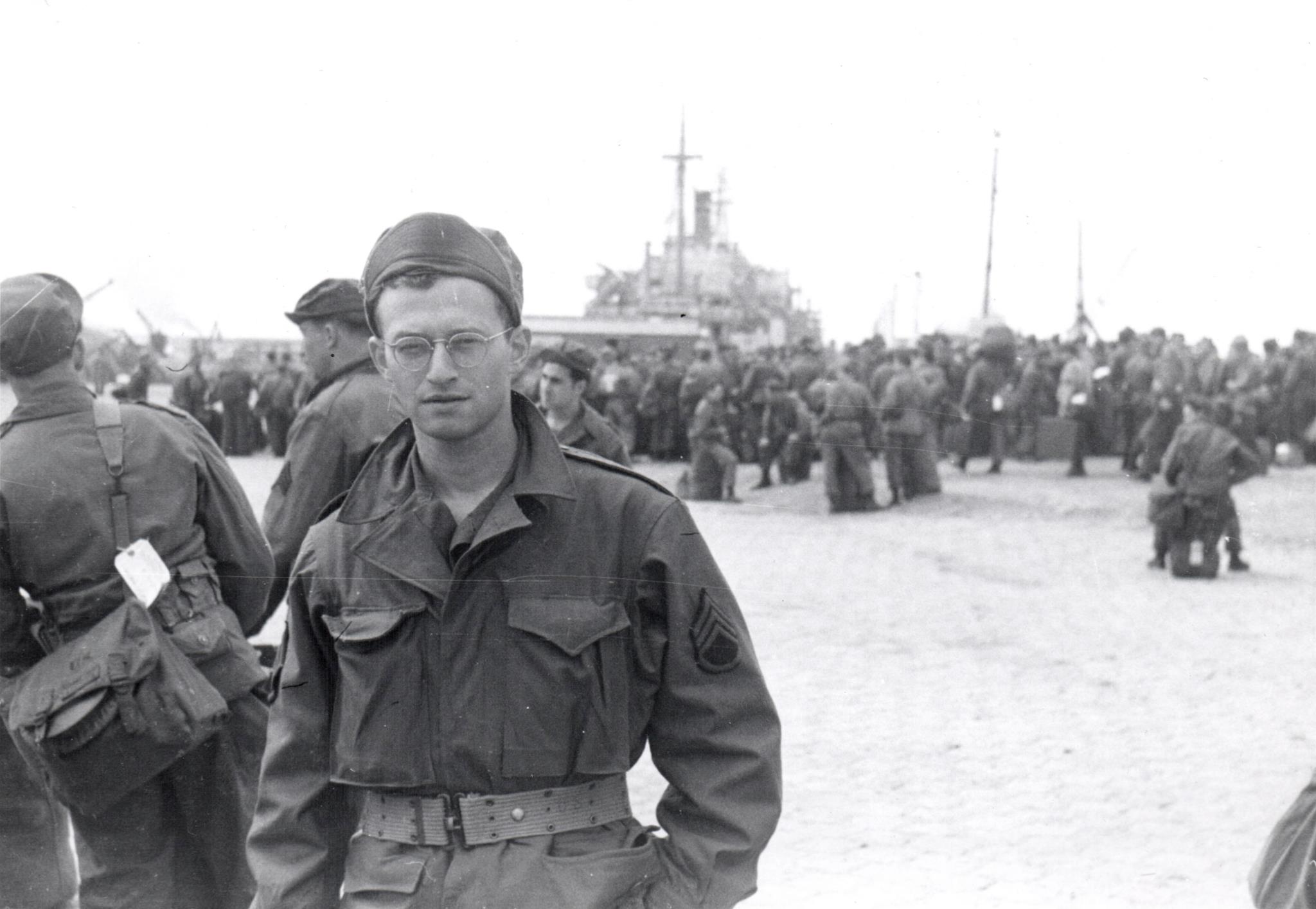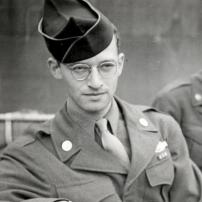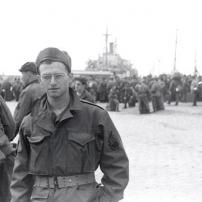A Chance Meeting with a POW in Chicago
One afternoon in the Spring of 1993, my wife and I visited a jeweler’s shop in The Mallers Building on Wabash Avenue to purchase a leather watchband. The shop owner overheard my wife and I conversing in German (my wife was Austrian and a stewardess for the German carrier Lufthansa) and he remarked “Ha! I spent some time in Germany.” My wife told him she was from Austria and he replied that he had lived in Austria. When I asked him where in Austria, he pulled up his left shirtsleeve, showed us a blurry series of numbers tattooed on his forearm and explained “I was a prisoner in the Gunskirchen Concentration Camp near Linz”.
Gunskirchen Lager was one of the more than 100 subcamps of the Mauthausen-Gusen Concentration Camp. It was designed to accommodate several hundred slave laborers. When it opened in April, 1945, however, it was overrun by thousands of prisoners the Nazis evacuated in Death Marches from the main Mauthausen-Gusen Camp and by large numbers of Hungarian slave laborers forced to march there from neighboring Hungary.
My father, who in 1945 was a 19 year-old infantryman assigned to the 71st Division, often spoke about having been one of the first American Soldiers to enter the Gunskirchen Concentration Camp when his unit liberated the prisoners there after elements of the 71st Division stumbled across the camp on May 4th, 1945. When I told the jeweler that my father was one of the first American Solders to enter the Gunskirchen camp, he responded “well then, your father must be black, because the first men into our camp were black tankers from Chicago!”
I asked the gentleman if I could use his telephone to call my father at his office and, as he listened in on our conversation, my father explained that his infantry squad was indeed following closely behind a tank from the 761st Tank Battalion for cover as it rolled over the barbed wire perimeter fence that enclosed the camp. The 761st Tank Battalion was the first African American armored unit to enter combat in the European Theatre, engaging in 183 days of uninterrupted fighting against the Nazis including at the Battle of The Bulge. My father and the gentleman exchanged their contact information so that my father could notify him of the details of his next 71st Division Reunion, and the man promised that he would attend.
That evening I recalled that years before I had represented an elderly man whose home on the South Side of Chicago had been cited for property violations. When I interviewed the man at his home, I noticed a framed photograph of an Army soldier on the table beside him. He explained that the photograph was taken of him when he was a tanker in WWII. The next day, I pulled his old file from my office records, contacted him, and learned that he was a member of the 761st Tank Battalion, and that he was in the tank my father and his squad followed over the fence and into the Gunskirchen Camp on May 4, 1945! I explained to him the circumstance of my meeting the former Gunskirchen POW and connecting him with my father, and he told me that the living members of the 761st Tank Battalion were having their reunion that Summer at The Fairmont Hotel in Downtown Chicago.
I put all three men in touch with one another, and later that Summer my father and the jeweler were my former client’s guests at the 761st Tank Battalion Reunion, where the former Gunskirchen POW was able to express his thanks and the thanks of the 15,000 prisoners who were liberated by the 761st and the 71st Division.
Photo:
The NARA photo depicts members of the 761st Tank Battalion in England preparing for action on mainland Europe. Original Caption: Front row (left to right): Sgt. Maxie Henry (Kansas City, MO); Pfc. Judge Favors (Tampa, FL); S/Sgt. Jack Gilbert (Chicago, IL); Pfc. Albert Fulwood (Huntingtown, WV); S/Sgt. John W. Bush (Cincinnati, OH). Rear (left to right): S/Sgt. Elmo Johnson (Topeka, KS); Pfc. Matthew L. Johnson (Homestead, GA); and Sgt. Arthur E. Ritchie (Chickasaw, OK). Photographer: Tonne



